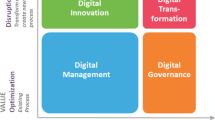Abstract
This paper tries to accomplish two tasks. First, it uses a critical review of the concept of differentiation to shed light on the expansion of the Mozambican higher education system, a consequence of the global neoliberal dynamics of higher education. Second, the neoliberal framework is applied to account for the development of multi-campus systems in the country. The paper argues that, on the one hand, the dispersion of multi-campuses resulted from an early stage of loosely regulated expansion and differentiation of higher education in the context of the liberalisation of higher education. On the other hand, the competition for students, in a market driven economy dominated by the existence of two main public institutions absorbing two-thirds of the students, prompted the establishment of satellite campuses by both private and public institutions, with serious and adverse implications for quality.
Similar content being viewed by others
References
Agência de Informação de Moçambique. (2010, March 25). Licensing of new universities suspended. MOZAMBIQUE 160 News reports & clippings. Maputo.
Aina, T. A. (2010). Beyond reforms: The politics of higher education transformation in Africa. African Studies Review, 53, 21–40.
Assié-Lumumba, N. T. (2006). Higher education in Africa: Crises, reforms and transformation. Dakar: Council for the Development of Social Science Research in Africa.
Bailey, T., Cloete, N., & Pillay, P. (2011). Case study: Mozambique and Eduardo Mondlane University. In N. Cloete, T. Bailey, P. Pillay, I. Bunting, & P. Maassen (Eds.), Universities and Economic Development in Africa (pp. 113–124). Cape Town: Centre for Higher Education Transformation.
Birnbaum, R. (1983). Maintaining diversity in higher education. San Francisco, CA: Jossey-Bass.
Castells, M. (1993). The university system: Engine of development in the new world economy. In A. Ransom, S.-M. Khoo, & V. Selvaratnam (Eds.), Improving higher education in developing countries (pp. 65–80). Washington, DC: The World Bank.
Chapman, M. P. (2006). American places: In search of the twenty-first century campus. American Council on Education (Praeger). Westport: Series on Higher Education.
Charles, D. R. (2003). Universities and territorial development: Reshaping the regional role of UK universities. Local Economy, 18, 7–20.
Charles, D. R. (2007). Universities and engagement with cities, regions and local communities. Retrieved April 1, 2015, from https://doi.org/www.pascalobservatory.org/sites/default/files/david_r_charles_dec_2007.pdf
Charles, D. R. (2009). Developing universities and research potential in peripheral regions. Regions Magazine, 273, 6–9. doi:10.1080/13673882.2009.9724791
Clark, B. R. (1983). The higher education system. Berkeley: University of California Press.
Cloete, N., Maassen, P., & Bailey, T. (Eds.). (2015). Knowledge production and contradictory functions in African higher education. Cape Town: African Minds.
Cloete, N., Maassen, P., Fehnel, R., Moja, T., Gibbon, T., & Perold, H. (Eds.). (2006). Transformation of higher education: Global pressures, local realities. Dordrecht: Springer.
Cornell, R. (2013). The neoliberal cascade and education: An essay on the market agenda and its consequences. Critical Studies in Education., 54, 99–112.
Creswell, J., Roskens, R., & Henry, T. (1985). A typology of multicampus systems. The Journal of Higher Education, 56, 26–37.
Department of Higher Education and Training. (2014). White paper for post-school education and training: Building an expanded, effective and integrated post-school system. Pretoria: DHET
Direcçâo de Coordenaçâo do Ensino Superior. (2014). Dados Estatisticos do Ensino Superior. Maputo: MINED.
Dober, R. P. (2000). Campus landscape: Functions, forms and features. New York, NY: Wiley.
Guri-Rosenblit, S., & Sebkova, H. (2004, December 1-3). Diversification of higher education systems: Patterns, trends and impacts. Paris: UNESCO Forum Colloquium on Research and Higher Education Policy (mimeo.).
Guri-Rosenblit, S., Sebkova, H., & Teichler, U. (2007). Massification and diversity of higher education systems: Interplay of complex dimensions. Higher Education Policy, 20, 373–389.
Huisman, J. (1995). Differentiation, diversity, and dependency in higher education: A theoretical and empirical analysis. Utrecht: Lemma.
Huisman, J., Meek, L., & Wood, F. (2007). Institutional diversity in higher education: A cross-national and longitudinal analysis. Higher Education Quarterly, 61, 563–577.
Johnstone, D. B. (1999). Management and leadership challenges of multicampus systems. In J. Gaither (Ed.), The multicampus system: Perspectives on practice and prospects (pp. 3–20). Sterling, VA: Stylus Press.
Kyvik, S. (2009). The dynamics of change in higher education: Expansion and contraction in an organisational field. Dordrecht: Springer.
Langa, P. V. (2006). The constitution of the field of higher education institutions in Mozambique (Unpublished masters dissertation). University of Cape Town Library, Cape Town.
Langa, P. V. (2012). Higher education marketisation and the relation to knowledge: Quality in question. Revista Científica da UEM, Série: Ciências da Educação, 1, 21–41.
Langa, P. V. (2013). Higher education in the Portuguese speaking African countries: A five country baseline study. Cape Town: African Minds.
Langa, P. V. (2014). Some challenges of higher education in Mozambique: From experiential knowledge to the need of production of scientific knowledge. In L. De Brito, C. N. Castel-Branco, S. E. Chichava, & A. Francisco (Eds.), Challenges for Mozambique 2014 (pp. 365–395). Maputo: IESE.
Langa, P. V., Cumaio, G., & Rafael, D. P. (2014). Fifty years of legislation and public policy on higher education in Mozambique. Cape Town: African Minds.
Langa, V. P., & Zavale, C. N. (2015). Private higher education in Mozambique: An overview of a growing subsystem. Working Papers in Higher Education Studies, 1, 89–109.
Lee, E. C., & Bowen, F. M. (1971). The multicampus university. New York, NY: McGraw-Hill.
Lee, E. C., & Bowen, F. M. (1975). Managing multicampus systems: Effective administration in an unsteady state. San Francisco, CA: Jossey-Bass. Carnegie Council on policy studies in higher education.
Lulat, Y. G. M. (2003). The development of higher education in Africa. A historical survey. In D. Teferra & P. Altbach (Eds.), African higher education: An international reference handbook (pp. 15–31). Bloomington: Indiana University Press.
Lulat, Y. G.-M. (2005). A history of African higher education from antiquity to the present. Westport, CT: Praeger.
Mamdani, M. (2000). Beyond rights talk and culture talk: Comparative essays on the politics of rights and culture. New York, NY: St. Martin’s Press.
Mamdani, M. (2007). Scholars in the marketplace. The dilemmas of neo-liberal reform at Makerere University, 1989–2005. Dakar: CODERSIA.
Mamdani, M. (2008). Higher education, the state and the marketplace. Journal of Higher Education in Africa, 6, 1–10.
Marginson, S. (1999). Diversity and convergence in Australian higher education. Australian Universities Review, 42, 12–23.
Mario, M., Fry, P., & Chilundo, A. (2003). Higher education in Mozambique: A case study. Oxford: James Currey.
Meek, L. V., Goedegebuure, L., Kivinen, O., & Rinne, R. (Eds.). (1996). The mockers and the mocked: Comparative perspectives on differentiation, convergence and diversity in higher education. Pergamon: IAU Press.
Meek, V. L., & Wood, F. Q. (1998). Managing higher education diversity in a climate of public sector reform. Canberra: DEETYA.
Mohamedbhai, G. (2003). Globalization and its implications for universities in developing countries. In G. Breton & M. Lambert (Eds.), Universities and globalization: Private linkages, public trust (pp.153–162). Paris: UNESCO/Universite Laval/Economica.
Molesworth, M., Nixon, E., & Scullion, R. (2009). Having, being and higher education: The marketisation of the university and the transformation of the student into consumer. Teaching in Higher Education., 14, 277–287.
Molesworth, M., Scullion, R., & Nixon, E. (Eds.). (2011). The marketisation of higher Education and the students as a consumer. London: Routledge.
Muller, J. (2014a, February 28). Differentiation: Africa lags (again) - Or does it? University World News Issue No: 309.
Muller, J. (2014b, November 29). Edging closer to differentiation in higher education. University World News Issue No: 345.
Munene, I. I. (2015). Multicampus university systems: Africa and the Kenyan experience. New York, NY: Routledge.
Naidoo, R. (2010). Global learning in a neoliberal age: Implications for development. In E. Unterhalter & V. Carpentier (Eds.), Global inequalities and higher education: Whose interests are we serving? (pp. 66–90). London: Palgrave Macmillan.
National Higher Education Directorate. (2016). Proposal for amendment and / or clarification of the Decree 48/2010 of 11 November approving the rules on the licensing and operation of the Institutions of higher education. Maputo: MCTESTP. Unpublished document for discussion.
Neave, G. (Ed.). (2000). The universities’ responsibilities to society: International perspectives. Oxford: Pergamon Press/International Association of Universities.
Ng’ethe, J., Subotzky, G., & Afeti, G. (2008). Differentiation and articulation in tertiary education systems. A study of twelve African countries. Washington, DC: The World Bank.
Perkin, H. (1997). History of universities. In L. F. Godchild & H. Wechsler (Eds.), The history of higher education (ASHE Reader Series) (2nd ed., pp. 3–32). Boston, MA: Pearson Custom Publishing.
Reimer, D., & Jacobs, M. (2011). Differentiation in higher education and its consequences for social inequality: Introduction to a special issue. Higher Education, 61, 223–227.
Republic of Mozambique. (2000). Strategic plan of higher education in Mozambique-2000–2010. Maputo: Ministry of Higher Education, Science and Technology (MESCT).
Republic of Mozambique. (2012). Strategic Plan for Higher Education, 2012–2020. Maputo: Ministry of Education.
Rhoades, G. (1990). Political competition and differentiation in higher education. In J. C. Alexander & P. Colony (Eds.), Differentiation theory and social change (pp. 187–221). New York, NY Columbia University Press.
Riesman, D. (1956). Constraint and variety in American education. Lincoln: University of Nebraska Press.
Scott, P. (1995). The meanings of mass higher education. Buckingham: Open University Press.
Scott, P. (1998). The globalization of higher education. Buckingham: Open University Press.
Teichler, U. (1988a). Changing patterns of the higher education systems. London: Jessica Kingsley.
Teichler, U. (1988b). Convergence or growing variety: The changing organisation of studies in Europe. Strasbourg: Council of Europe.
Teichler, U. (2004). Changing structures of the higher education systems: The increasing complexity of underlying forces. In UNESCO Forum Occasional Forum Series. (ED.06/RSC II.ENA/ 1). Paris: Paper No. 6 - Diversification of higher education and the changing role of knowledge and research (pp. 2–15).
Teichler, U. (2008). Diversification? Trends and explanations of the shape and size of higher education. Higher Education, 56, 349–379.
The Task Force on Higher Education and Society. (2000). Higher education in developing countries: Peril and promise. Washington, DC: World Bank.
Trow, M. (1974). Problems in the transition from elite to mass higher education. In OECD. (Ed.). Policies for higher education (pp. 51–101). Paris: OECD.
Trow, M. (1979). Elite and mass higher education: American models and European realities. Stockholm: National Board of Universities.
Trow, M. (2000). From mass higher education to universal access: The American advantage (Research and Occasional Paper Series: CSHE.1.0). Berkeley: University of California.
UEM. (2015). Rector’s Annual Report. Maputo: University Press.
UNESCO (2014). Country profiles, Mozambique - Education. Retrieved August 3, 2015, May 2015, from https://doi.org/www.uis.unesco.org/DataCentre/Pages/country-profile.aspx?code=MOZ&re gioncode=40540
UNESCO Institute for Statistics. (2012). Global education digest 2012. Montreal: UIS.
van Vught, F. (2007, November 16). Diversity and Differentiation in Higher Education Systems. Paper presented at the CHET 10th Anniversary Conference, Cape Town.
van Vught, F. (2008). Mission Diversity and Reputation in Higher Education. Higher Education Policy, 21, 151–174.
Wangenge-Ouma, G., & Langa, P. V. (2010). Universities and the mobilization of claims of excellence for competitive advantage. Higher Education., 59, 749–764.
Author information
Authors and Affiliations
Corresponding author
Rights and permissions
About this article
Cite this article
Langa, P. A disjointed multi-campus system: the neo-liberal expansion and fragmentation of Mozambican higher education. Tert Educ Manag 23, 23–40 (2017). https://doi.org/10.1080/13583883.2016.1214286
Received:
Accepted:
Published:
Issue Date:
DOI: https://doi.org/10.1080/13583883.2016.1214286




